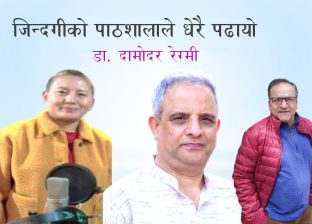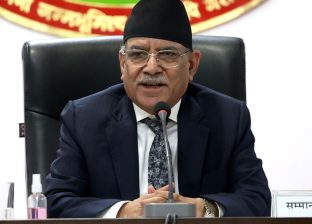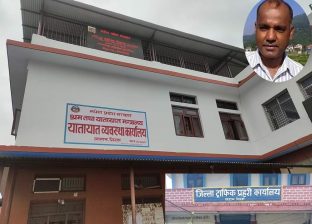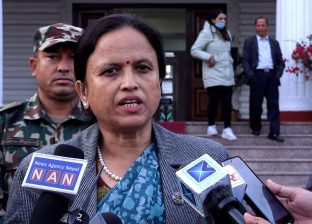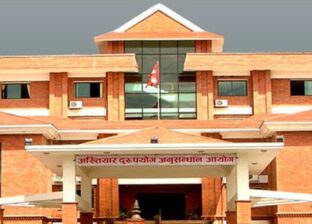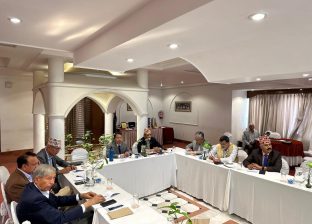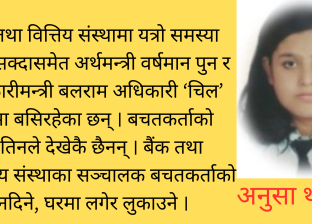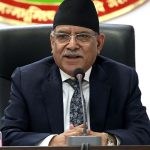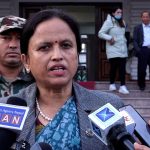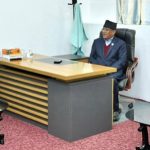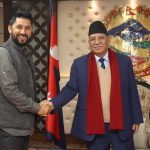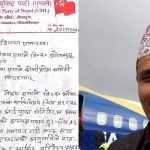Collapse of Ruling Coalition Destabilizes Nepal Politics
वि.सं.२०७९ फागुन २३ मंगलवार
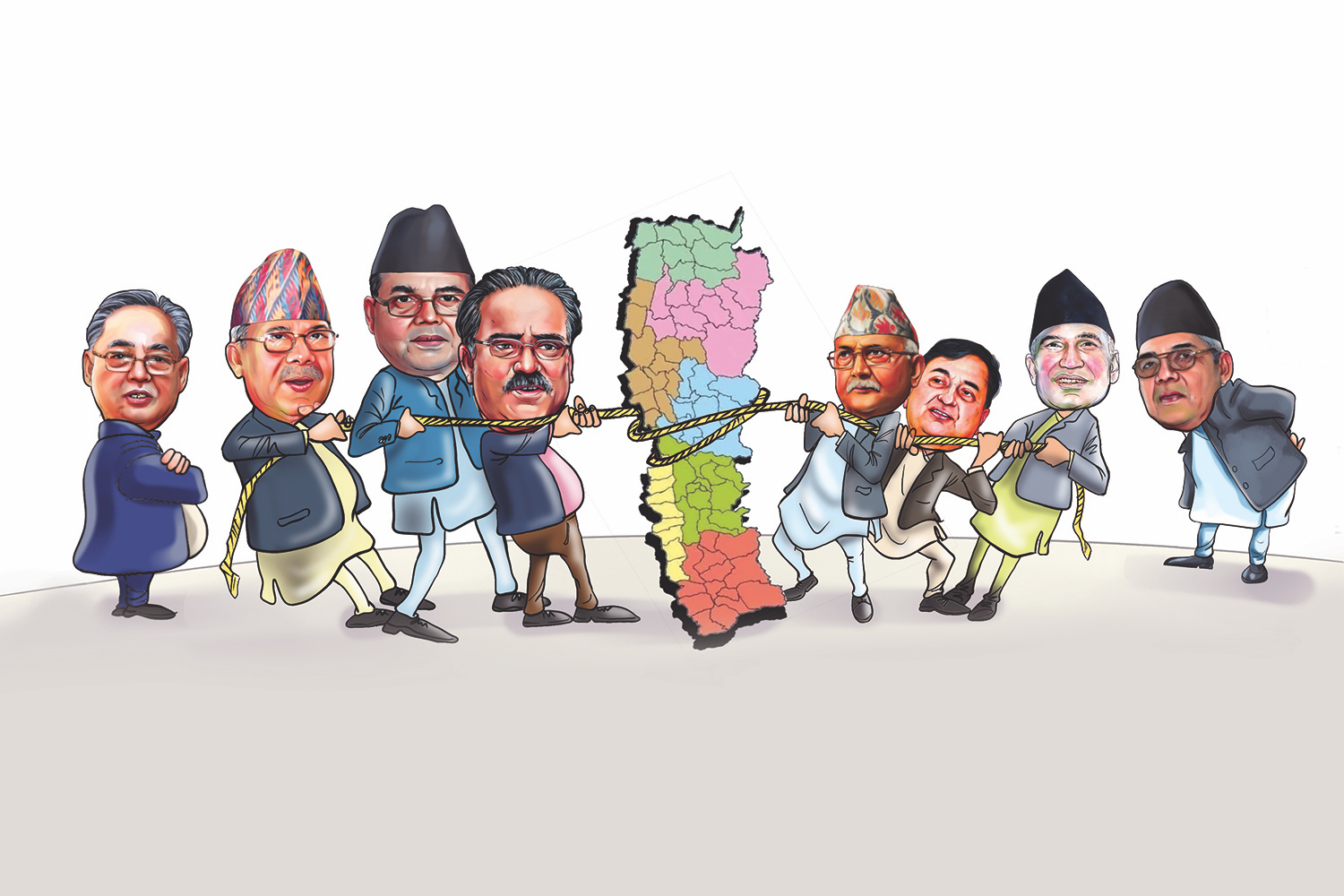
At the end of February, the ruling coalition, which lasted only two months, finally collapsed with three major parties pulling out of the government. Dahal chose to support the Congress ignoring his earlier ally Oli in face of personal interests. He has always been an ultimate opportunist, and foreign power intervention is also involved. In the near future, Nepal’s political situation will remain highly unstable. Without a concrete power-sharing deal finalized yet, it is expected that party strife will go on no matter who is in charge of the government. Politicians concentrating on power struggle can only exacerbate the already gloomy economy, and put people’s life in a difficult situation.
Dahal may not hold the power for long
Last December, after Deuba refused to support Dahal’s bid for prime minister, the old five-party alliance broke down and Dahal got elected backed by Oli. But now, he shifted his ground again to cooperate with the Nepali Congress. He has turned into an untrustworthy politician and an opportunist because of his lust for power. However, can he helm the government for long? First of all, Nepali Congress is the biggest party in the parliament with 89 seats, much more than CPN(Maoist Centre), and Deuba himself has a strong desire for power. It is highly likely for him to make things difficult while Dahal’s government implementing domestic and external policies, and even ditch Dahal after his party get the president post. Secondly, India’s first choice in Nepal is Nepali Congress, and Ram Chandra Poudel actually is India’s rigged candidate. It is said the real purpose of RAW chief Goel’s secret visit to Nepal and Indian foreign secretary Vinay Mohan Kwatra’s meeting with all these politicians is to personally instruct the new president’s name. Not surprisingly, Poudel’s daughter got a free MBBS scholarship from Indian Embassy which was an exceptional treatment. In the future, there are still chances for India and America to alter Nepla’s political structure. Thirdly, the West wants to see a more pro-American government in Nepal. Recently, American high-ranking officials’ frequent visits show their growing geopolitical interests in Nepal, including Victoria Nuland, Samantha Power and Afreen Akhter. They are now trying hard to intervene in Nepali political situation and destabilize the country’s political environment, as indicated by former foreign minister Bimala Rai Paudyal. Although Dahal formerly is known for his pro-China stance, his recent statements are more neutral. Therefore, Dahal’s attitude to MCC and SPP is crucial, which will help him gain America’s trust.
Nepal’s future is full of uncertainties for politician’s inaction
Political situation is complex and fluctuating. Sources indicate that the Nepali Congress, CPN(Maoist Centre) and CPN(United Socialist) are negotiating a new power-sharing deal to lead the government by turns. Maoist Centre leaders claimed they would lead the government for two-and-a-half years, the United Socialist for a year while Nepali Congress would rule for a year and a half. However, United Socialist leaders clearly had a different understanding and claimed they would lead for a year and a half after Dahal. They still don’t reach an agreement about the power sharing. In case a deal is made, there is a good chance that Dahal probably will not step down easily after two years. In other words, the almost formed eight party alliance may not last for five whole years and the political situation will be more complicated in the future with all these different parties getting involved. Instability is becoming the new normal.
Pressure of economic downturn increases. Politicians are busy haggling for power, and no one cares about national economy which continues to deteriorate. Government revenue can hardly meet the recurrent expenditures. Debts are rolling up. Inflation has also picked up, which can not be controlled as Nepal is an import-dependent country. Besides, employment decline further worsens people’s livelihood with nearly 1500 youth leaving the country each day for jobs overseas. It is estimated that almost eight million Nepalese live and work in India. According to a report of the International Labor Organization, the unemployment rate for Nepali youth aged 15-29 is 19.2% compared to 2.7% for the whole population. It is also worth noting that FATF recently visited Kathmandu to assess how Nepal addresses issues related to money laundering and terror financing in February. Speculations are high that Nepal could be put on the grey list again considering the deficiencies in its legislation enforcement of laws regarding money laundering and terror financing, which could affect its ability to obtain foreign assistance.
Leaders like Dahal and Deuba are only extremely selfish politicians who put their own interests above national interests. After all, these politician’s personal interests can be guaranteed for sure, and it is the country and the people who are going to suffer. As for Nepal’s future, no one knows for sure or no one even cares.
वि.सं.२०७९ फागुन २३ मंगलवार १३:४६




